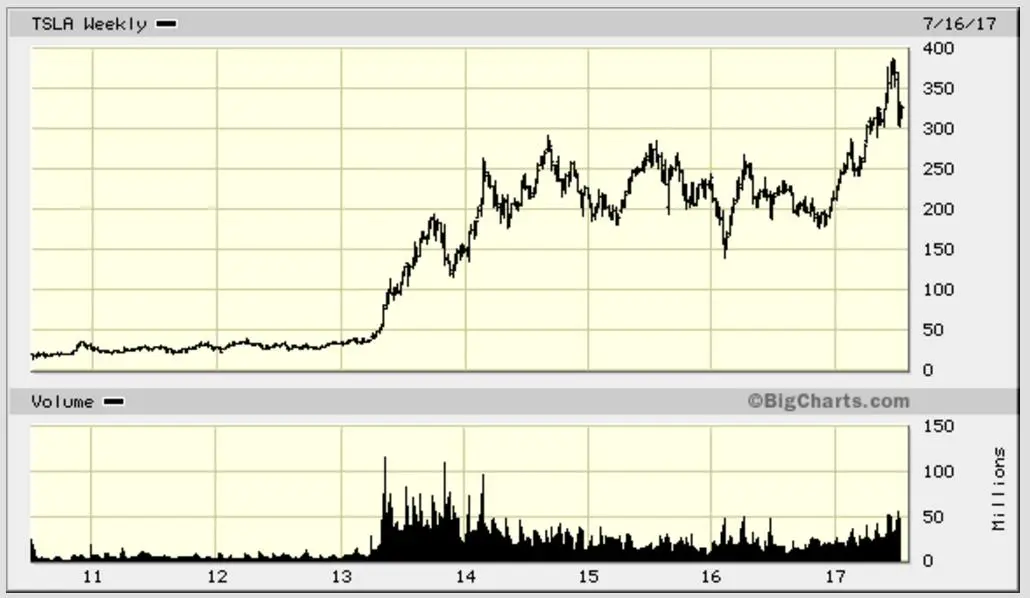Tesla honcho Elon Musk is not like Steve Jobs, Warren Buffett, Bill Gates, Oprah Winfrey, or even LeBron James, who made their billions through innovation in a free, fair market. Musk has made his wealth from the taxpayer (if not all, at least a lot of). In a particularly glorious, damning bit of investigative reporting, the Los Angeles Times recently determined that Musk’s empire had been built on almost $5 billion in government subsidies. This includes:
-
$750 million from New York State to build a solar panel factor in Buffalo.
-
A 10 year property tax exemption from New York worth an estimated $260 million.
-
$500 million in direct solar power grants from the Treasury Department.
-
$1.3 billion in incentives from Nevada to build a battery factory near Reno.
-
$517 million in California’s emissions tax credits from competing automakers (so that kind of makes Musk an environmentalist bookie, of sorts).
Whenever it’s reported that General Electric pays no taxes, we grumble at the thought. But Musk doesn’t do just that, he takes taxes. The taxpayer’s “investment” in his financial empire has certainly been a boon to Musk’s Tesla, which has seen its stock price soar over the years:

Right now, Musk is asking for yet more taxpayer money, this time to fund his pet project SpaceX, which he hopes will take him to Mars. The organization recently asked the U.S. Senate’s Subcommittee on Space, Science, and Competitiveness for an (ahem) “public-private partnership” to advance missions outside of Earth’s orbit.
Of the hearing, Wired Magazine wrote, “the future of space will continue in that good ol’ fashioned American spirit of free markets with a heaping side of government help.”
Like a reverse Robin Hood, Musk isn’t robbing from the rich and giving to the poor: He’s robbing from the working class and keeping it for himself. As the Wall Street Journal astutely wrote last year, “Tesla looks more like a classic of the reverse income redistribution of green crony capitalism, in which the middle-class taxpayers subsidize billionaires who make products to satisfy the anti-fossil-fuel indulgences of the upper classes.”
But now that Musk has risen to the top, he has started to condemn government subsidies. This is symptomatic of Silicon Valley’s schizophrenic Ayn Randian attitude that the believe they created the world through their genius alone, and not without loads of government support. (News flash, Bay Area liberals: Silicon Valley was created by the DOD.)
On this contradiction, columnist Jim Motavalli said, “Elon is now looking at it from the point of view of a winner, and he doesn’t want to see other people win because they get government money. I do think there is a tendency of people, once they have succeeded, to want to pull the ladder up after them.”
Or perhaps like Iron Man, Musk is like Tony Stark condemning weapons manufacturers after having already created the perfect one in the Iron Man suit:
(At this point, I have to interject that director Jon Favreau admitted to modelling the Iron Man character after Musk who cameoed as himself in 2010’s Iron Man 2).
Musk is also no doubt worried about how competition for subsidies may affect his own business model. As those subsidies run out, investors will start grumbling. And they already have, with a $1.3 billion drop in market capitalization reported this week.
Now all of this is not to say that the government should not, appropriately, intervene to help develop potential technologies while they are in a pre-natal state that cannot be monetized. However, the format for that is in basic research, which is handled at our many, invaluable research universities across the country. Dedicated scientists are better for creating the building blocks of our future than, for example, a showman who wants “to die on Mars, just not on impact.”
There is also the implication of who would run Mars if Musk got there—it wouldn’t be U.S. soil, so who would be in charge? Whatever the answer, you can be sure we’ll be footing the bill for his intergalactic vacation.
